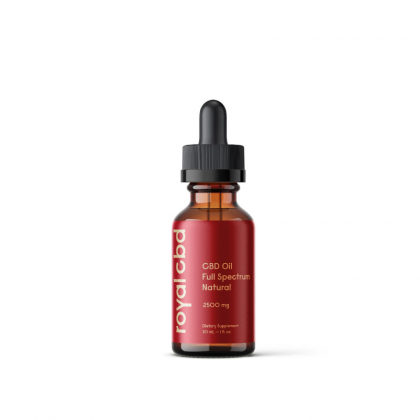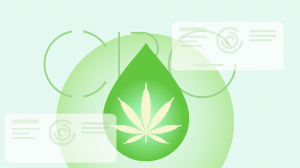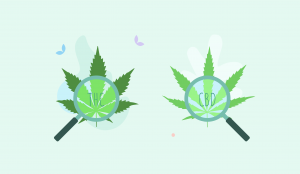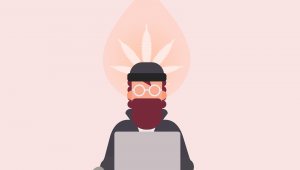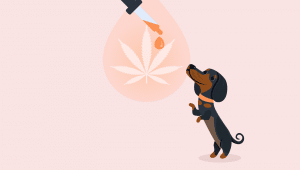| Total CBD: | 500 – 2500 mg |
| Potency: | 16.6 - 83.3 mg/mL |
| Cost per mg CBD: | $0.12 – $0.18 |
| Extract Type: | Full-spectrum |
| THC Content: | <0.3% |
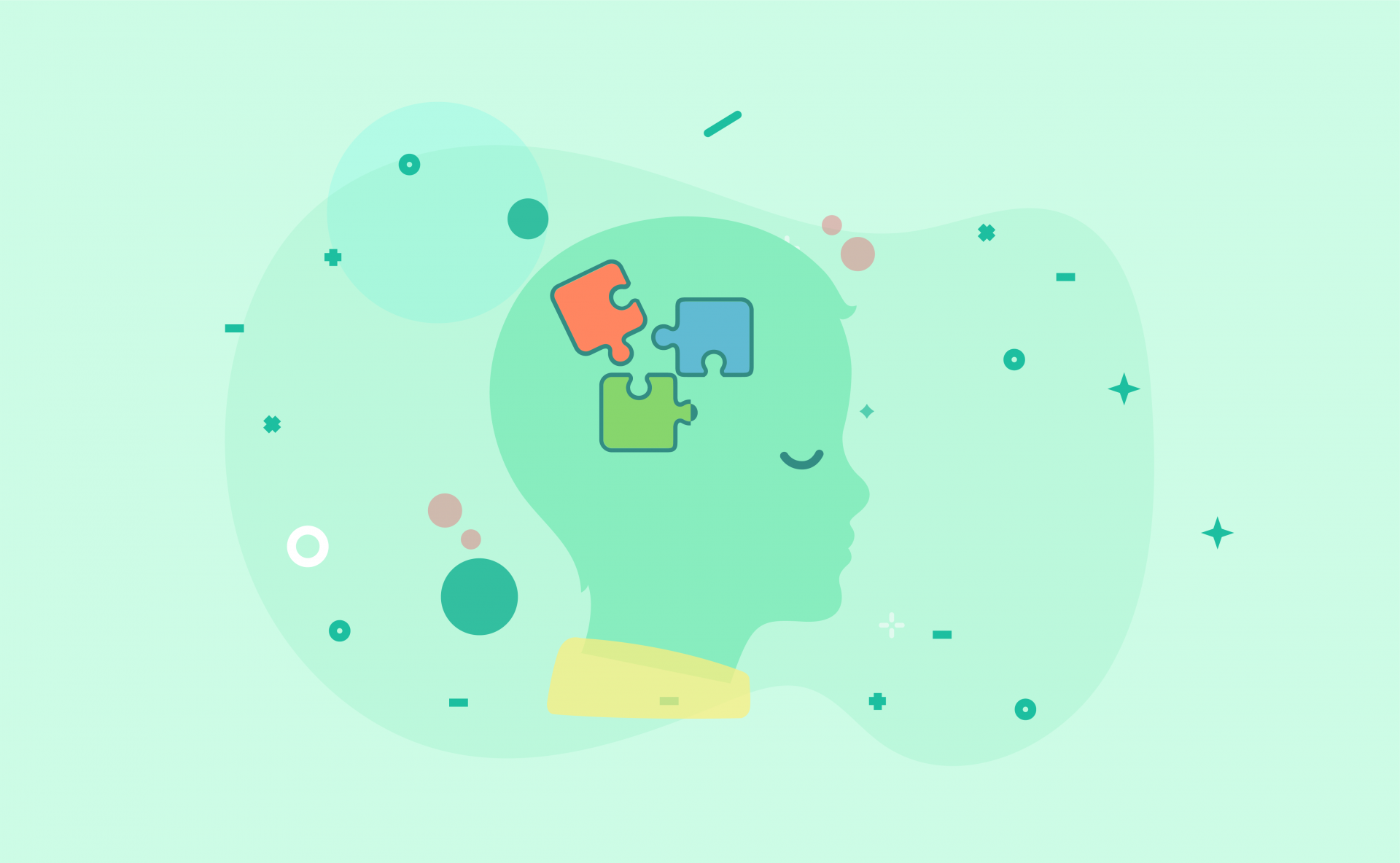
Evidence based
CBD Oil for Autism: Benefits and Usage Guide for Children & Adults
Autism-spectrum disorder (ASD) is a common developmental disorder involving dysfunctional social skills and abnormal cognitive function.
Learn how other parents are using CBD oil & CBD gummies to support children with ASD.
Autism spectrum disorder is an increasingly common condition, usually identified in early childhood.
There are virtually no effective treatment options for the condition, which negatively affects the quality of life and working capacity.
CBD is promising as a new and effective treatment option for those suffering from the condition.
In this article, we discuss how CBD can be used for autism, what the research says about it, and how you can choose the best CBD oil for the job.
The Benefits of CBD Oil For Autism
CBD has many suggested uses, some of them are well-warranted — others are a bit of a stretch.
When it comes to autism — a complex and difficult condition to treat — CBD is becoming a promising new treatment option.
Many children with autism spectrum disorder (ASD) often have under-functioning anandamide (one of our primary endocannabinoids) and alterations in both serotonin and dopamine — two important neurotransmitters in the brain.
CBD works specifically by optimizing anandamide levels in the body by preventing its breakdown and increasing the rate of release of this important regulatory molecule. This offers direct benefits on autism by addressing what many researchers believe to be one of its main underlying causes.
Here’s how CBD May Improve Autism:
- Reduces the frequency and severity of seizures [6, 7]
- Reduces the severity of dysfunctional social behaviors in autistic patients [6]
- Reduces social anxiety symptoms [8]
- Alleviates addictive behaviors [9]
- Stabilizes mood disorders [11]

1. Seizures
In one study, CBD extracts were shown to reduce epileptic seizures in 89% of the patients treated in the study. This is significant when you consider the fact that roughly 20-30% of autism sufferers experience either occasional or frequent seizures.
There’s even a pharmaceutical medication preparing to hit the market based on CBD that is specific for treating seizures. It’s called Epidiolex
2. Social Behavior Dysfunctions
Social behavior issues are the hallmark of autism. Sufferers often experience social anxiety, inability to communicate effectively, and inattention to social cues.
Most of the research in this area comes to us through case studies, involving the reports of doctors and parents watching over autistic children who take CBD oil. These carers take note of any improvements or worsening in social behavior during the course of treatment.
In an attempt to improve our understanding of this, researchers have started doing studies on rat models of autism. Many of those studies are noting significant improvements in socializing behavior in the affected rats after taking CBD [12].
3. Anxiety
Anxiety is an area where CBD tends to shine in terms of treatment options.
It works through a number of pathways in the central nervous system associated with stress and anxiety [12], starting with the hypothalamus — the main regulator of the stress and anxiety response.
CBD increases the sensitivity of this important region of the brain, making it more receptive to stress and therefore better able to regulate an appropriate response to it.
People with autism often lack effective stress management from this region of the brain, suffering a lot from anxiety when there are any changes in their routine or environment.
Other studies have shown direct improvement in social anxiety scores in a model based on public speaking [8].
4. Addictive Behavior
One of the most common traits of autistic children is addictive behavior towards stimulation-inducing activities, such as video games or television [10].
A dysfunction in dopamine release is thought to be the main cause of this. This neurotransmitter plays a key role in the reward center of the brain, which gives us a dose of the feel-good molecule — oxytocin — when we do something that benefits the body.
In some people, such as those with autism or in people suffering from ADHD, dopamine levels are low, causing them to seek greater stimulation to get the same response.
This makes it easy to develop an addiction to stimulating activities, like TV and video games.
CBD was shown to improve the addictive behavior in pre-clinical trials by improving the dopamine reward system — allowing sufferers to find the reward response more easily without needing to seek excessive stimulation [9].
5. Mood Disorders
A common finding in those with autism is mood disorders.
The most common forms are depression, anxiety, bipolar disorder, mania, and psychosis. Many of these are regulated through serotonin activity in the brain.
CBD was shown to reduce hyperactivity of the serotonin receptors and has similar effects to lithium, which is a common pharmaceutical mood-stabilizing medication [11].
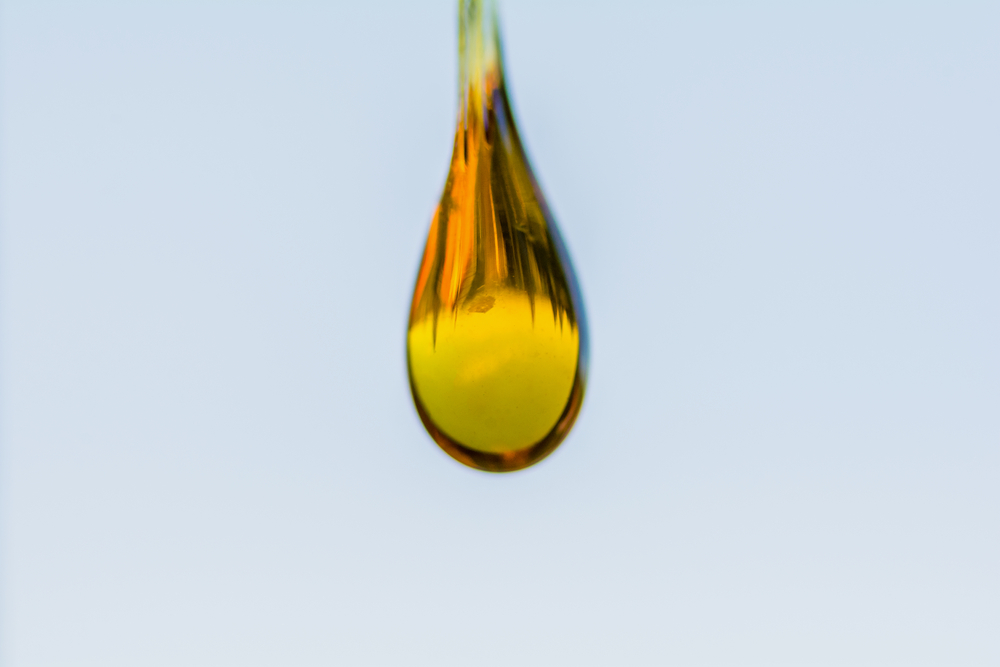
What’s The Dose of CBD For Autism?
Finding the dose of CBD is perhaps the most confusing part of the entire process.
This is because the endocannabinoid system is incredibly diverse from one person to the next, making it hard to know exactly how much CBD is needed to produce the desired effects.
With autism, it’s important to always start at a very low dosage and build up slowly over time, as you learn how it affects the individual directly.
For teens and adults, you can use our CBD oil dosage calculator. However, for children, you’ll need to adapt the dose differently. It’s best to visit a pediatrician to get expert advice on how to use CBD oil safely with small children.
For autism, we recommend staying on the conservative side and start with a much smaller dose than you think you’ll need — then gradually increase.
The right dose is identified when you find relief from symptoms.
Best CBD Gummies For Autism
- Royal CBD Gummies
- Gold Bee CBD Gummies (Vegan-Friendly)
- Just CBD Gummies
Why You Should Avoid THC with Autism
THC has been shown to lower anandamide concentrations, which is already at risk of being too low in people with autism. Pushing this further could worsen symptoms, rather than improve them.
Cannabinoids like THC and THCV may also induce anxiety, rather than alleviate it, which is one of the most problematic symptoms for people with an autism spectrum disorder.
Cautionary Note When Using CBD Extracts for Autism
It’s important to note that virtually all the benefits shown to come from the cannabis plant towards autism come from high CBD and low THC extracts.
In fact, THC is likely to make symptoms much worse.
Therefore, it’s critical that only hemp extracts containing less than 0.3% THC are used for this condition.

What is Autism?
Autism isn’t a single condition, rather a group of related neurological disorders.
The official term for autism is Autism Spectrum Disorder, which highlights the fact that there is an entire spectrum of disorders associated with it — some far more severe than others.
All forms of autism will involve at least some degree of cognitive deficit. It often affects communication skills and one’s ability to function in school, work, or other areas of life.
Some of the Disorders Included in or Related to the Autism Spectrum Are:
- Asperger’s disease
- Angelman syndrome
- Rett syndrome
- Dup15q syndrome
While autism frequently brings cognitive impairments, in some cases (~10%) ASD involves something referred to as “savant syndrome”, where the person can display excellence in math, science, and artistic aptitude.
The savants tend to be much stronger auditory and visual learners, and have an excellent memory.
Of course, in the spectrum of autism disorders, this is not always the case.
How Common is Autism?
An estimated 1% of the entire population is suspected to have autism [1]. That accounts for approximately seven and a half million people.
In the United States, it’s estimated that roughly one in 59 children have the disorder [3], and that number is on the rise.
It’s becoming increasingly important to find an effective prevention and treatment plan for those suffering from the condition.
What are the Signs & Symptoms of Autism?
Autism symptoms can vary a lot from one person to the next.
In order to classify them within the autism spectrum disorder (ASD), however, there are some general signs and symptoms that doctors take into consideration during diagnostics.
Signs and Symptoms of Autism May Include:
- Aversion to eye contact
- Frequent ignoring or interrupting
- Rarely sharing enjoyment with other people by pointing or showing things to others
- Solitary habits
- Difficulty carrying on with a conversation
- Showing facial expressions that don’t match the conversation
- Unusual tones of voice (robotic or sing-song)
- Difficulty understanding other people’s point of view
- Repetitive behaviors
- Abnormally intense interest in certain topics
- Increased sensitivity to lights or sounds
- Irritability
- Epileptic seizures (20–30% of cases)
What Causes Autism?
The causes of this condition are not well understood. There are just a lot of theories. In reality, there are likely to be many factors working together to cause autism.
What we do know is that autism is more common in people who have other family members with the condition (genetic link), in children who were birthed by much older parents (40 years or older), in combination with other disorders (such as Down’s syndrome or Rett syndrome), and in children who were severely underweight at birth.
Potential Causes of Autism May Include:
- Infectious diseases during fetal development or early childhood
- Severe underweight at birth
- Low thyroxine levels in the mother during the early stages of pregnancy [13]
- Autoimmune disease
- Lack of vitamin D during early development
- Lead or mercury poisoning
- Fetal alcohol syndrome
How is Autism Diagnosed?
Autism is a developmental disorder, which means that it originates during early childhood. The initial diagnosis is usually made around the 2-year mark but it can happen at any age.
More severe forms of autism are easier to diagnose, while subtle forms can go undiagnosed for decades.
The standard method for diagnosing autism is through the criteria of a book called the Diagnostic and Statistic Manual of Mental Disorders – or DSM5.
Doctors will often screen all children for any signs of autism during regular health checkups. If there are any signs and symptoms associated with the condition, a further psychiatric evaluation may be ordered, though this depends on the doctor.
If autism is suspected, blood tests, hearing tests, and further psychiatric evaluations are conducted to rule out any other condition that may explain the symptoms.
Often, children showing autistic tendencies simply have difficulties with their hearing, as it results in very similar symptoms.
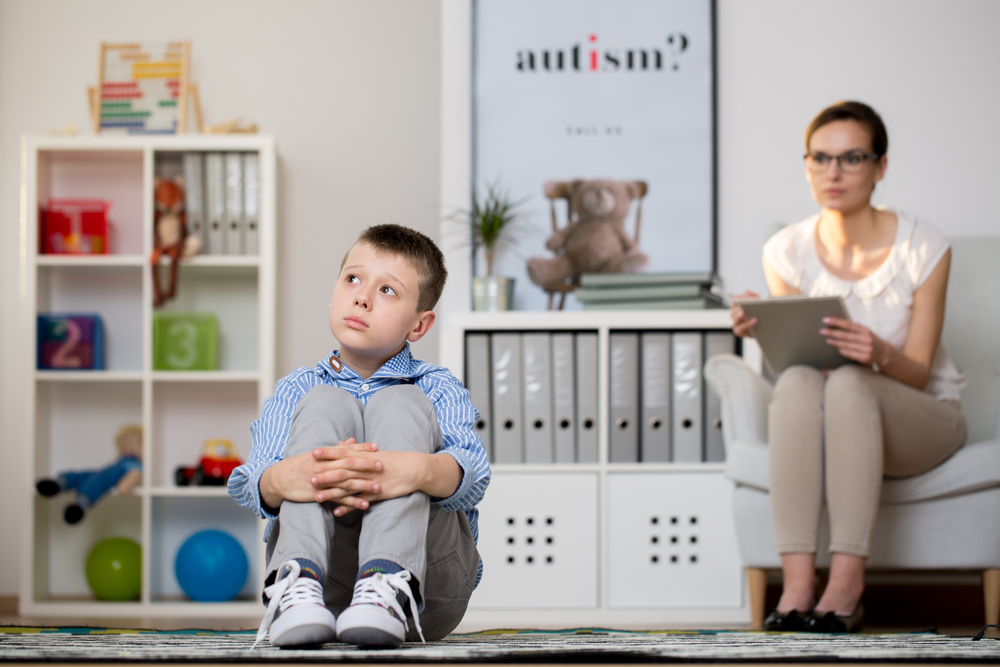
Conventional Treatments For Autism
There are currently no effective treatments for autism.
Any medication or treatment given is for symptomatic support only. This can include anti-anxiety medications, attention deficit hyperactivity disorder (ADHD) medications, antidepressants, and muscle relaxants, which are the most common.
In recent years, CBD has come to the surface as a potential treatment for the disorder after a series of parents and doctors have started to share their success stories in using CBD oils for autistic children.
Let’s get into how this works and what the evidence says about it.
What Is CBD?
CBD stands for cannabidiol.
It’s one of the two major cannabinoids found in the cannabis plant.
What are cannabinoids, you ask?
They’re a group of compounds that interact with the endocannabinoid system in the body (more on this later). They can be natural (from plants) or artificial.
The two main cannabinoids are THC and CBD. There are, however, over 60 other cannabinoids also present in varying concentrations in the cannabis plant.
Of the two major cannabinoids, THC is responsible for the psychoactivity, while CBD is non-psychoactive. This means it won’t produce any psychoactive effects, even in high doses. It does, however, produce a wide range of medicinal benefits, from anti-anxiety all the way to immune boosting.
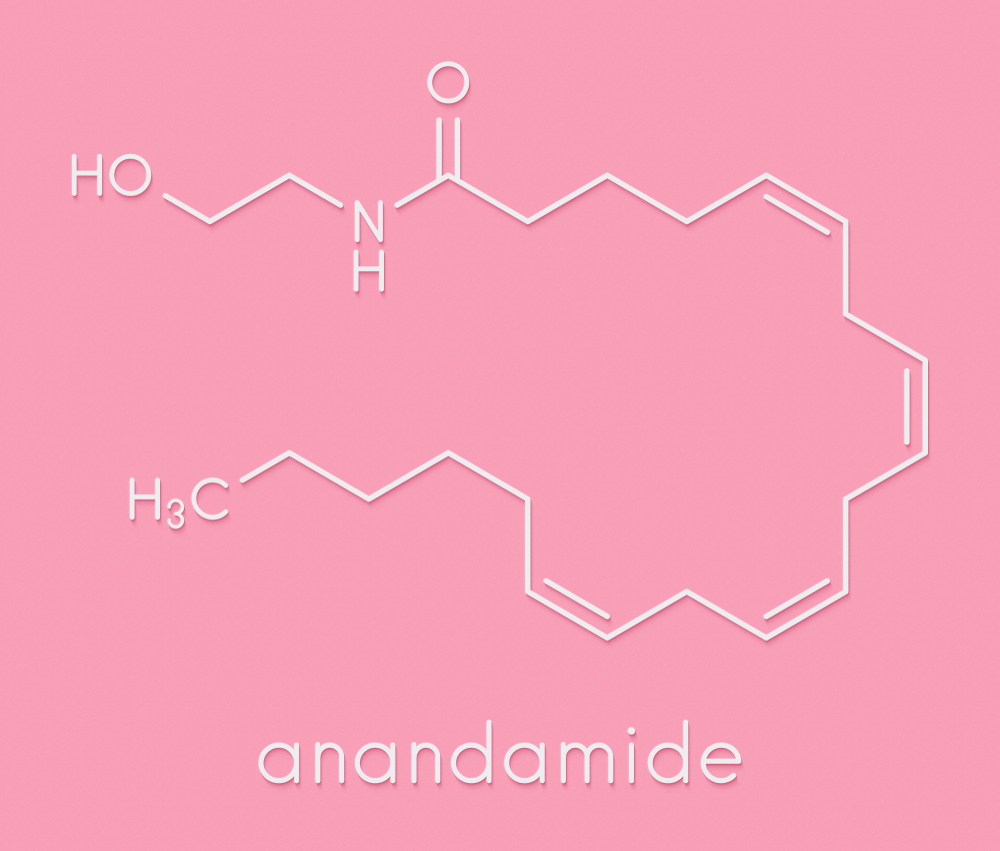
The Role of the Endocannabinoid System in Autism
All mammals have a set of receptors and hormones/neurotransmitters that collectively form the endocannabinoid system.
It’s a diverse system, involved with regulating processes all over the body including the liver, kidney, brain, and immune function.
It also plays a major role in the regulation of such things like emotion and social interaction, two aspects that are profoundly affected in those with autism.
Studies have shown that those with autism have lower concentrations of the body’s main endocannabinoid, anandamide when compared to healthy patients [4]. This is a strong indication that a dysfunctional endocannabinoid system is involved with the symptoms of autism.
Some studies have even gone so far as connecting autism with the release of oxytocin, the primary neurotransmitter involved with reinforcing parental and social bonds. This process appears to be regulated through the endocannabinoid system [5], so you can see how CBD could be helpful.
Key Takeaways: Which CBD Oil Should I Use For Autism?
When choosing a CBD oil, it’s always important to look for something high-quality and avoid the cheaper, poorly made options which are common in the market.
These extracts are unreliable and may contain harmful additives.
For autism, you can choose to go with a full spectrum extract — which includes all of the other cannabinoids and terpenes found in the plant — or a CBD isolate.
Full-spectrum extracts contain other compounds that help enhance the effects of CBD by improving absorption, passage across the blood-brain barrier, and maybe even offering therapeutic support of their own.
CBD isolates don’t contain these other ingredients but have higher doses of CBD. Most of the research on autism was done using CBD isolates.
It’s also important to remember to avoid anything that includes THC. In many ways, it has the opposite effect of CBD and can lower anandamide levels even further, thus worsening the condition. Always check the bottle for THC concentration.
We recommend taking a look at our article on the best CBD oils to learn more about it and to see what oil is best for you.
References
- Lai, M.C., Lombardo, M. V., Baron-Cohen, S., (2014). Autism. Lancet 383, 896–910.
https://doi.org/10.1016/S0140-6736(13)61539-1 - Poleg, S., Golubchik, P., Offen, D., & Weizman, A. (2018). Cannabidiol as a suggested candidate for treatment of autism spectrum disorder. Progress in Neuro-Psychopharmacology and Biological Psychiatry.
- Baio, J., Wiggins, L., Christensen, D. L., Maenner, M. J., Daniels, J., Warren, Z., … & Durkin, M. S. (2018). Prevalence of autism spectrum disorder among children aged 8 years—Autism and Developmental Disabilities Monitoring Network, 11 Sites, United States, 2014. MMWR Surveillance Summaries, 67(6), 1.
- Karhson, D. S., Krasinska, K. M., Dallaire, J. A., Libove, R. A., Phillips, J. M., Chien, A. S., … & Parker, K. J. (2018). Plasma anandamide concentrations are lower in children with autism spectrum disorder. Molecular autism, 9(1), 18.
- Wei, D., Lee, D., Cox, C. D., Karsten, C. A., Peñagarikano, O., Geschwind, D. H., … & Piomelli, D. (2015). Endocannabinoid signaling mediates oxytocin-driven social reward. Proceedings of the National Academy of Sciences, 112(45), 14084-14089.
- Kaplan, J. S., Stella, N., Catterall, W. A., & Westenbroek, R. E. (2017). Cannabidiol attenuates seizures and social deficits in a mouse model of Dravet syndrome. Proceedings of the National Academy of Sciences, 114(42), 11229-11234.
- Tzadok, M., Uliel-Siboni, S., Linder, I., Kramer, U., Epstein, O., Menascu, S., … & Dor, M. (2016). CBD-enriched medical cannabis for intractable pediatric epilepsy: the current Israeli experience. Seizure, 35, 41-44.
- Bergamaschi, M. M., Queiroz, R. H. C., Chagas, M. H. N., De Oliveira, D. C. G., De Martinis, B. S., Kapczinski, F., … & Martín-Santos, R. (2011). Cannabidiol reduces the anxiety induced by simulated public speaking in treatment-naive social phobia patients. Neuropsychopharmacology, 36(6), 1219.
- Devinsky, O., Cilio, M. R., Cross, H., Fernandez‐Ruiz, J., French, J., Hill, C., … & Martinez‐Orgado, J. (2014). Cannabidiol: pharmacology and potential therapeutic role in epilepsy and other neuropsychiatric disorders. Epilepsia, 55(6), 791-802.
- Lalanne, L., Weiner, L., & Bertschy, G. (2017). Treatment of Addiction in Adults with Autism Spectrum Disorder. In Handbook of Treatments for Autism Spectrum Disorder (pp. 377-395). Springer, Cham.
- Rong, C., Lee, Y., Carmona, N. E., Cha, D. S., Ragguett, R. M., Rosenblat, J. D., … & McIntyre, R. S. (2017). Cannabidiol in medical marijuana: research vistas and potential opportunities. Pharmacological research, 121, 213-218.
- Murphy, L. L., Steger, R. W., Smith, S., & Bartke, A. (1990). Effects of delta-9-tetrahydrocannabinol, cannabinol and cannabidiol, alone and in combinations, on luteinizing hormone and prolactin release and on hypothalamic neurotransmitters in the male rat. Neuroendocrinology, 52(4), 316-321.
- Román, G. C. (2007). Autism: transient in utero hypothyroxinemia related to maternal flavonoid ingestion during pregnancy and to other environmental antithyroid agents. Journal of the neurological sciences, 262(1-2), 15-26.
More Health Conditions to Explore
-
Conditions Related to Health Benefits
- CBD For Allergies: Can This Cannabinoid Ease Symptoms?
- Top 10 CBD Oils For Back Pain
- Can CBD Help With Menstrual Cramps?
- CBD for Sciatica: How It Works, Safety, Drug Interactions, & Best Products
- Is CBD a Viable Treatment for Cerebral Palsy?
- CBD Oil For Sleep
- CBD For Psoriasis: Can CBD Help to Alleviate Symptoms?
- Traumatic Brain Injury (TBI)
- Arthritis
- Anxiety & Depression
- Weight Loss
- ADD & ADHD
- Anorexia
- Alzheimer’s Disease & Dementia
- Addiction
- ALS (Amyotrophic Lateral Sclerosis)
- Antibiotic Resistance
- Asthma
- Atherosclerosis
- Autism
- Acne
- Bipolar Disorder
- Pain
- Crohn's Disease & Ulcerative Colitis
- Diabetes
- Epilepsy
- Endocrine Disorders
- Fibromyalgia
- Fatty Liver Disease
- Glaucoma
- Hypertension
- Heart Disease
- Huntington's Disease
- Inflammation
- Irritable Bowel Syndrome (IBS)
- Kidney Disease
- Migraine Headaches
- Muscle Recovery
- Multiple Sclerosis
- Motion Sickness
- Metabolic Syndrome
- Neurodegeneration
- Cancer
- Nausea
- Neuropathic (Nerve) Pain
- Osteoporosis/Bone Health
- Obsessive-Compulsive Disorder (OCD)
- Polycystic Ovarian Syndrome (PCOS)
- PTSD
- Prion/Mad Cow Disease
- Premenstrual Syndrome (PMS)
- Parkinson’s Disease
- Schizophrenia
- Sickle Cell Anemia
- Stroke
-
Conditions Related to Products
- Ranking The Top 13 THC Gummies By Category (Δ8, Δ9, Δ10, HHC, & More)
- Top 10 CBD Oils For Back Pain
- Everything You Need to Know About CBD Sunscreen
- Top 7 CBD Gummies For Sleep & Insomnia
- Top 7 CBD Gummies To Help With Anxiety (2022)
- Best CBD Gummies For Pain (Top-Rated Pain Gummies For 2022)
- Best Hemp Cigarettes (Top 5 Nicotine-Free Smokes)
- Top 5 CBD Lip Balms For 2022
- The Top 7 CBD Face Masks for 2022
- The Best CBD Inhalers For 2022 (& How to Use Them)
- Best Full-Spectrum CBD Vape Juice: What to Look For & How to Use It
- CBD Eye Drops: New Option For Glaucoma?
- CBD Oil For Dogs With Arthritis
- Best CBD Massage Oils In 2022
- Buyer's Guide To The Best CBD Vape Kits In 2022
- CBD Chocolate: Yes, It Exists & It's Just as Divine as it Sounds
- CBD Pre-Rolls & Cigarettes
- Terpene Concentrates
- Best CBD Soaps
- Best CBD Shampoo & Conditioner
- Best CBD Juul Pods
- CBD Isolate Oils
- Full-Spectrum CBD Oils
- Best CBD Lube
- CBD Honey
- CBD Transdermal Patches
- Best Dry Herb Vaporizers
- CBD Oil For Dogs With Epilepsy
- CBD Oil For Dogs With Anxiety
- CBD Oil For Dogs With Cancer
- CBD For Horses
- CBD Chewing Gum
- CBD Pain Cream
- CBD Oil For Cats
- CBD Oil For Dogs
- CBD Hemp Flower
- CBD Suppositories
- Best CBD Gummies for Pain, Sleep & Anxiety Reviewed (2022)
- CBD Teas
- CBD Vape Pens
- CBD Vape Oils
- CBD Coffee
- CBD Drinks & Shots
- CBD Crystals
- CBD Skincare
- Best CBD Oil & Gummies For Kids: Is CBD Safe for Children with Anxiety & ADHD?
- CBD Concentrates
- CBD Bath Bombs
- CBD Capsules
- CBD Sprays
- CBD Dog Treats
-
Conditions Related to Topicals
-
Conditions Related to Oils & Tinctures
-
Conditions Related to Edibles
- Top 7 CBD Gummies To Help With Anxiety (2022)
- Best CBD Gummies For Pain (Top-Rated Pain Gummies For 2022)
- CBD Chocolate: Yes, It Exists & It's Just as Divine as it Sounds
- CBD Honey
- CBD Chewing Gum
- Best CBD Gummies for Pain, Sleep & Anxiety Reviewed (2022)
- CBD Teas
- CBD Coffee
- CBD Drinks & Shots
- CBD Capsules
-
Conditions Related to Gummies
- Ranking The Top 13 THC Gummies By Category (Δ8, Δ9, Δ10, HHC, & More)
- Top 7 CBD Gummies For Sleep & Insomnia
- Top 7 CBD Gummies To Help With Anxiety (2022)
- Best CBD Gummies For Pain (Top-Rated Pain Gummies For 2022)
- Best CBD Gummies for Pain, Sleep & Anxiety Reviewed (2022)
- Best CBD Oil & Gummies For Kids: Is CBD Safe for Children with Anxiety & ADHD?
-
Conditions Related to Hemp Flower
-
-
Conditions Related to Terpenes
-
-
Conditions Related to Cultivation
-
Conditions Related to Concentrates
-
Conditions Related to Delta 8 THC
-
Conditions Related to Delta 9 THC
-
-
-
-
Conditions Related to CBD
- Everything You Need to Know About CBD Sunscreen
- Top 7 CBD Gummies For Sleep & Insomnia
- Top 7 CBD Gummies To Help With Anxiety (2022)
- Best CBD Gummies For Pain (Top-Rated Pain Gummies For 2022)
- Best Hemp Cigarettes (Top 5 Nicotine-Free Smokes)
- Top 5 CBD Lip Balms For 2022
- The Top 7 CBD Face Masks for 2022
- The Best CBD Inhalers For 2022 (& How to Use Them)
- Best Full-Spectrum CBD Vape Juice: What to Look For & How to Use It
- CBD Eye Drops: New Option For Glaucoma?
- CBD Oil For Dogs With Arthritis
- Best CBD Massage Oils In 2022
- Buyer's Guide To The Best CBD Vape Kits In 2022
- CBD Chocolate: Yes, It Exists & It's Just as Divine as it Sounds
- CBD Pre-Rolls & Cigarettes
- Best CBD Soaps
- Best CBD Shampoo & Conditioner
- Best CBD Juul Pods
- CBD Isolate Oils
- Full-Spectrum CBD Oils
- Best CBD Lube
- CBD Honey
- CBD Transdermal Patches
- CBD Oil For Dogs With Epilepsy
- CBD Oil For Dogs With Anxiety
- CBD Oil For Dogs With Cancer
- CBD For Horses
- CBD Chewing Gum
- CBD Pain Cream
- CBD Oil For Cats
- CBD Oil For Dogs
- CBD Hemp Flower
- CBD Suppositories
- Best CBD Gummies for Pain, Sleep & Anxiety Reviewed (2022)
- CBD Teas
- CBD Vape Pens
- CBD Vape Oils
- CBD Coffee
- CBD Drinks & Shots
- CBD Crystals
- CBD Skincare
- Best CBD Oil & Gummies For Kids: Is CBD Safe for Children with Anxiety & ADHD?
- CBD Concentrates
- CBD Bath Bombs
- CBD Capsules
- CBD Sprays
- CBD Dog Treats
-
-
Conditions Related to THC-O
-
-
Conditions Related to Joint Health
-
Conditions Related to Pain Disorders
- Top 10 CBD Oils For Back Pain
- Can CBD Help With Menstrual Cramps?
- CBD for Sciatica: How It Works, Safety, Drug Interactions, & Best Products
- Traumatic Brain Injury (TBI)
- Arthritis
- Pain
- Fibromyalgia
- Glaucoma
- Inflammation
- Kidney Disease
- Migraine Headaches
- Multiple Sclerosis
- Neuropathic (Nerve) Pain
- Premenstrual Syndrome (PMS)
- Sickle Cell Anemia
-
Conditions Related to Autoimmune Disease
-
Conditions Related to Cognitive Health
-
Conditions Related to Metabolic Disorders
-
Conditions Related to Psychological Disorders
-
Conditions Related to Muscles & Bones
-
Conditions Related to Nervous System
- CBD for Sciatica: How It Works, Safety, Drug Interactions, & Best Products
- Is CBD a Viable Treatment for Cerebral Palsy?
- CBD Oil For Sleep
- Traumatic Brain Injury (TBI)
- Anxiety & Depression
- ADD & ADHD
- Anorexia
- Alzheimer’s Disease & Dementia
- Addiction
- ALS (Amyotrophic Lateral Sclerosis)
- Autism
- Bipolar Disorder
- Epilepsy
- Huntington's Disease
- Inflammation
- Migraine Headaches
- Multiple Sclerosis
- Motion Sickness
- Neurodegeneration
- Neuropathic (Nerve) Pain
- Obsessive-Compulsive Disorder (OCD)
- PTSD
- Prion/Mad Cow Disease
- Parkinson’s Disease
- Schizophrenia
-
-
Conditions Related to Reproductive Health
-
Conditions Related to Hormones & Endocrine
-
Conditions Related to Skin Health
-
Conditions Related to Cardiovascular System
-
Conditions Related to Digestive System
-
Conditions Related to Genetic Disorders
-
Conditions Related to For Children


